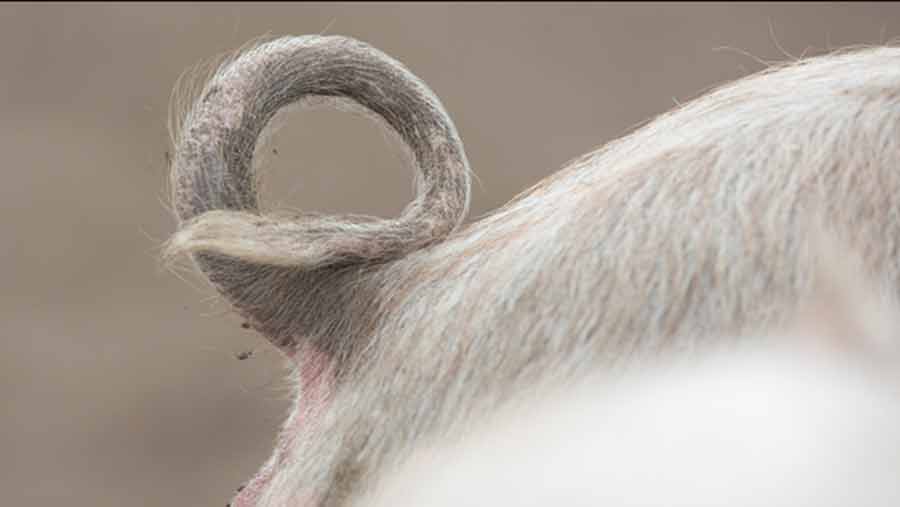Inspectors set to clamp down on routine pig tail docking
 © Tim Scrivener
© Tim Scrivener Stricter inspections to monitor the tail docking of pigs is thought to be coming into force in January 2019 after a number of producers have been penalised during routine cross-compliance inspections.
According to the National Pig Association (NPA), routine tail docking has been flagged up during a number of inspections in recent months, with one producer receiving a 5% deduction to his BPS payment.
The NPA believe enforcement of legislation regarding tail docking and provision of environmental enrichment is set to increase, although there is a lack of clarity from the Animal and Plant Health Agency about any changes to inspections.
See also: EC offers guidance to reduce pig tail docking
The NPA believes farmers will need to demonstrate that tail docking has been used as a last resort after taking the necessary steps, as described in legislation, to reduce the risk of tail biting.
This includes actions to monitor and improve the pigs’ environment, including ensuring sufficient provision of acceptable environmental enrichment.
Defra comment on inspections
Defra failed to answer whether inspections were set to become stricter, but said: “Pig farmers need to demonstrate at inspections that tail docking has been used as a last resort after taking the necessary steps, as described in the current welfare codes, to reduce the risks of tail biting. This includes actions to improve the pigs’ environment and their management.
“We wish to see full compliance and, to aid enforcement, we have gone out to consultation with a new statutory pig welfare code. This provides detailed information on the different factors that can cause tail biting and will provide advice on how to prevent it and to avoid the need to dock pigs’ tails. We will be publishing the new pig welfare code and our response to the consultation in due course.”
The NPA has set up a tail docking working group consisting of government, industry, vets, farmers and academia to look at how they can work together more closely and develop a joint approach to reduce tail docking in the UK.
Read more on what the changes mean for pig producers and what they should be doing to prepare for stricter inspections in our Q&A with the NPA and Apha.
